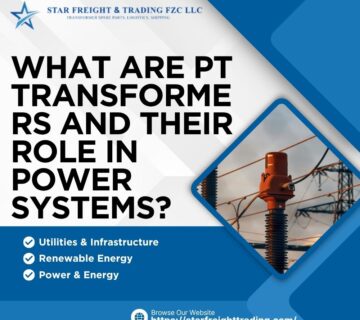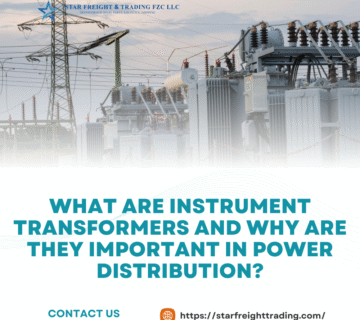When we hear the term DC voltage, many of us immediately think of batteries. That’s true batteries give us DC (Direct Current) power. But DC voltage is much more than just powering small devices. It is also widely used in industrial applications where reliable and stable power is needed. Blog
What Is DC Voltage?
DC stands for Direct Current. In DC voltage, electricity flows in one direction only, unlike AC (Alternating Current), which constantly changes direction. Think of DC as water flowing through a pipe in a steady stream without reversing. This makes DC power very stable, which is why it’s perfect for sensitive equipment and machines.
Why DC Voltage Is Important in Industries
In industries, machines and systems need power that doesn’t fluctuate too much. A sudden power change can damage equipment or stop production. DC voltage provides a smooth and consistent power supply, which helps machines work efficiently and safely. Our Services
Common Industrial Uses of DC Voltage
- Battery Storage Systems
Factories often use DC-powered battery banks to store energy. These batteries can provide backup power during outages. - Motors and Drives
Many industrial machines run on DC motors, especially where speed and torque control are required. For example, conveyor belts, rolling mills, and elevators often use DC motors. - Electroplating and Welding
Processes like electroplating, anodizing, and welding need a stable DC supply to work properly. Without DC, these processes wouldn’t be smooth. - Control Systems
Industrial sensors, controllers, and automation systems usually run on low-voltage DC power (like 24V DC). This ensures safety and accuracy. - Renewable Energy Systems
Solar panels and wind turbines produce DC voltage before it’s converted to AC for general use. In industries, this DC is sometimes used directly or stored in batteries.
Sources of DC Voltage
DC (Direct Current) voltage means the electric current flows in one direction only. To get DC voltage, we need special sources that can provide this type of power. These sources are widely used in electronics, batteries, vehicles, and many industrial applications. Our Products
Main Sources of DC Voltage:
- Batteries – The most common source. They store chemical energy and convert it into DC electrical energy.
- Solar Cells (Photovoltaic Cells) – Convert sunlight directly into DC electricity.
- DC Generators – Machines that change mechanical energy into DC power.
- Rectifiers – Convert AC (Alternating Current) from the mains supply into DC using diodes.
- Fuel Cells – Produce DC electricity through chemical reactions between hydrogen and oxygen.
- Power Supplies/Adapters – Used in electronic devices (like chargers) to provide stable DC from AC outlets.
Can DC motors be used in factories?
Yes, DC motors can be used in factories. They are often used in machines that need speed control, smooth operation, or quick start and stop. For example, they are used in conveyor belts, rolling mills, elevators, and robotic arms. Since DC motors give good control over speed and torque, they are very useful in industries where precision is important. However, they usually need more maintenance than AC motors, so factories choose them when accuracy and control are more important than low maintenance.
How is DC voltage used in renewable energy?
In renewable energy systems like solar panels and wind turbines, DC voltages plays a very important role. Solar panels produce electricity in the form of direct current (DC), which means the electricity flows in one steady direction. This DC power is then either stored in batteries for later use or converted into alternating current (AC) using an inverter, because most of our household appliances run on AC. Batteries, which are essential for storing renewable energy, also work with voltage. So, without DC voltage, storing and managing energy from renewable sources like solar and wind would not be possible.
Conclusion
DC voltage is not just about batteries or electronics it plays a vital role in industries around the world. From powering motors to running control systems, DC ensures that production is smooth, efficient, and safe. In short, without DC voltage, modern industries would struggle to function effectively. Contact us
Frequently Ask Questions
-
What is DC voltages?
DC voltages is a steady electrical potential difference where current flows in a single direction. -
How is DC different from AC?
DC flows in one direction, while AC voltage alternates direction periodically. -
Where is DC voltages commonly used?
It’s used in batteries, solar panels, electronic circuits, and devices like laptops and smartphones. -
How is DC voltages measured?
A multimeter set to DC voltage mode measures the potential difference between two points. -
Can DC voltages be converted to AC?
Yes, using an inverter, DC can be converted to AC for household or industrial use. -
Is DC voltages safe?
It depends on the voltage level. Low voltages (like batteries) are generally safe, but high voltages can be dangerous.





No comment